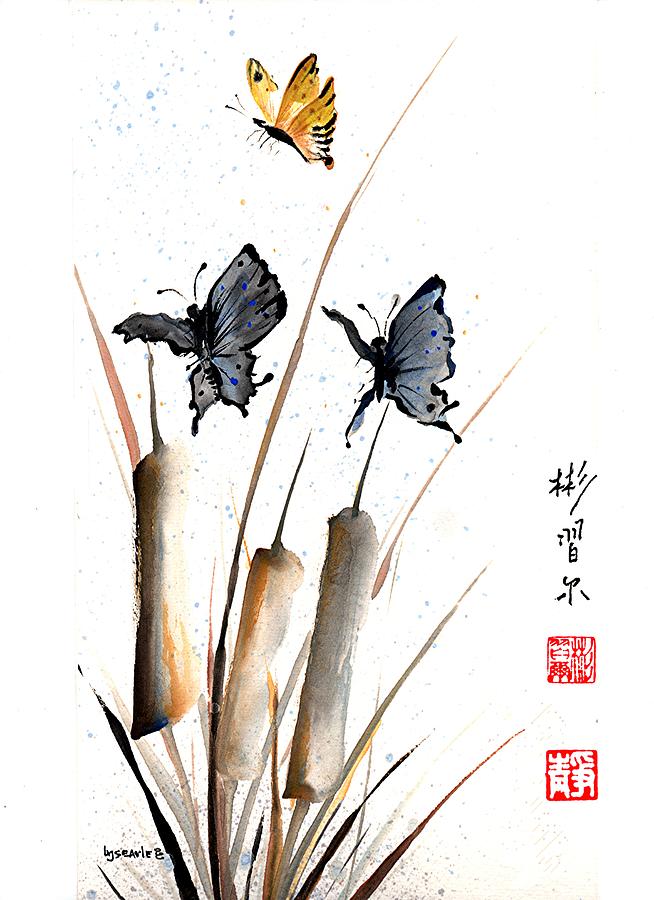Searle, Echo of Silence, 2014
Jane Hershfield's essay on the haiku of Basho, "Seeing Through Words" ...
The haiku describes the poet’s inner state—yet without the explanatory headnote, its words appear no less external than those of the previous poem. How then should it be understood?To read a haiku is to become its co-author, to place yourself inside its words until they reveal one of the proteus-shapes of your own life. The resulting experience may well differ widely between readers: haiku’s image-based language invites an almost limitless freedom of interpretation. Written near the end of Bashō’s life, “this road” can be read as a poem painting the landscape of loneliness or as a poem looking toward an unnavigable death. It can also be read as direct and immediate self-portrait: the uninhabitedautumn evening and empty road may themselves be the poet and what he feels. Understood in this last way, the haiku presents its author as a person outside any sense of the personal self. He has fallen into a world in which there is no walker, only path.Paths mattered to Bashō, who could—like Wordsworth or John Muir—cover twenty or thirty miles a day by foot. In his youth, it seems he traveled only as circumstances required. In mid-life, he traveled by choice, following the example of earlier poet-wanderers he admired. By the end of his life, his journeying gives off the scent of an irrefusable restlessness, a simple incapacity to stay long at home. In the opening words of “Narrow Road to the Deep North,” a prose and haiku journal describing a trip of roughly 1500 miles undertaken by foot, boat, and horseback at the age of forty-five, Bashō wrote, “The moon and sun are travelers of a hundred generations. The years, coming and going, are wanderers too. Spending a lifetime adrift on boat decks, greeting old age while holding a horse by the mouth—for such a person, each day is a journey, and the journey itself becomes home.”






































































































































No comments:
Post a Comment